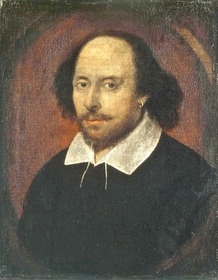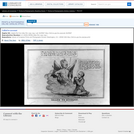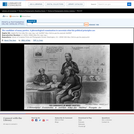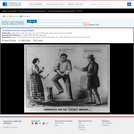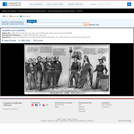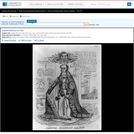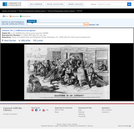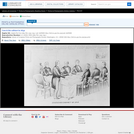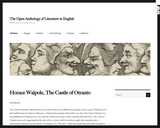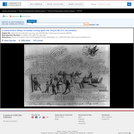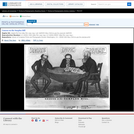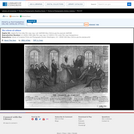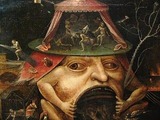![[Calendar For 1863]](https://img.oercommons.org/160x134/oercommons/media/upload/materials/screenshots/materials-course-76485.png)
An advertising calendar for a lithographic printer, with various patriotic motifs and a subtle commentary on the Emancipation Proclamation. The calendar, for 1863, is set within an elaborate architectural framework. The whole is draped with an enormous flag which hangs down from an enthroned Columbia at top. Columbia sits holding a sword and shield, an eagle on her left, and a globe and the Constitution at her feet. Further left are a plough, scythe, and wheat sheaves. On the right appear symbols of progress and industry including a telescope, locomotive, anvil and hammer, millstone and gear wheel, and bales and barrels of goods. On the middle register are symbols of the arts, sciences, and learning, including an easel painting, palette and brushes, musical instruments, books, urns, and a tapestry. On the far left a seaman mans a cannon before a backdrop of sails and smokestacks. On the right an infantryman stands guard with his dog before an encampment. At the bottom are two scenes. The scene on the left shows three black children and a white child, who watches idly as one of the three stands on a cotton bale and whitewashes over a placard reading "1862." Another black child, kneeling on a crude wooden block with chains attached to it (an allusion to slavery), holds the bucket of whitewash, and the third blows soap bubbles. In the scene on the right the roles are reversed: as the white child works, the three black children are idle. Standing on a pedestal labeled "Emancipation," the white boy inscribes the date "1863" on a panel. He holds a portfolio under his arm. A black child sits on a classical cornice at left, holding a small bucket of paint while one of his companions reclines on the ground. The third black child sits fiddling on a fallen column nearby. A small hourglass appears in a vignette below the calendar. |Ehrgott, Forbriger & Co. Lith. Cincinnati.|Entered . . . 1862 by Ehrgott, Forbriger & Co. . . . Ohio.|The Library's impression of the calendar was deposited for copyright on January 3, 1863. |Title appears as it is written on the item.|Published in: American political prints, 1766-1876 / Bernard F. Reilly. Boston : G.K. Hall, 1991, entry 1862-18.
- Subject:
- History
- U.S. History
- Material Type:
- Diagram/Illustration
- Primary Source
- Provider:
- Library of Congress
- Provider Set:
- Library of Congress - Cartoons 1766-1876
- Date Added:
- 06/13/2013
